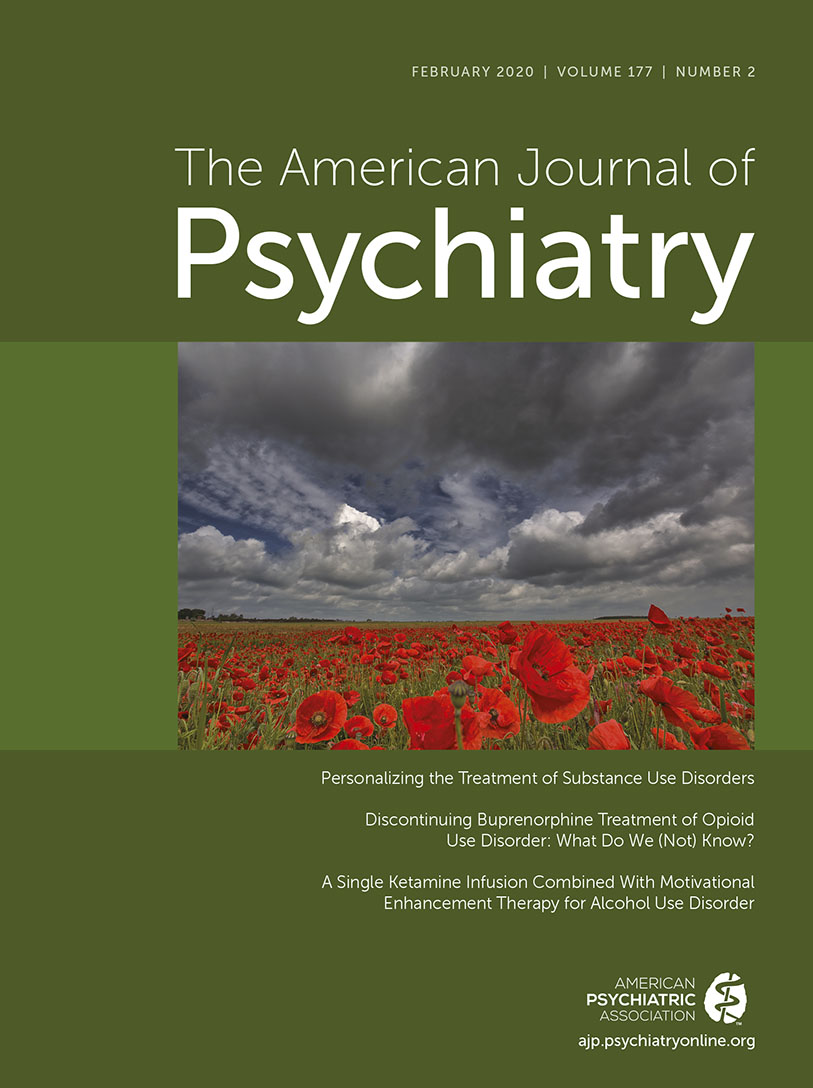A Single Ketamine Infusion Combined With Motivational Enhancement Therapy for Alcohol Use Disorder: A Randomized Midazolam-Controlled Pilot Trial
Abstract
Objective:
Pharmacotherapy and behavioral treatments for alcohol use disorder are limited in their effectiveness, and new treatments with innovative mechanisms would be valuable. In this pilot study, the authors tested whether a single subanesthetic infusion of ketamine administered to adults with alcohol dependence and engaged in motivational enhancement therapy affects drinking outcomes.
Methods:
Participants were randomly assigned to a 52-minute intravenous administration of ketamine (0.71 mg/kg, N=17) or the active control midazolam (0.025 mg/kg, N=23), provided during the second week of a 5-week outpatient regimen of motivational enhancement therapy. Alcohol use following the infusion was assessed with timeline followback method, with abstinence confirmed by urine ethyl glucuronide testing. A longitudinal logistic mixed-effects model was used to model daily abstinence from alcohol over the 21 days after ketamine infusion.
Results:
Participants (N=40) were mostly middle-aged (mean age=53 years [SD=9.8]), predominantly white (70.3%), and largely employed (71.8%) and consumed an average of five drinks per day prior to entering the study. Ketamine significantly increased the likelihood of abstinence, delayed the time to relapse, and reduced the likelihood of heavy drinking days compared with midazolam. Infusions were well tolerated, with no participants removed from the study as a result of adverse events.
Conclusions:
A single ketamine infusion was found to improve measures of drinking in persons with alcohol dependence engaged in motivational enhancement therapy. These preliminary data suggest new directions in integrated pharmacotherapy-behavioral treatments for alcohol use disorder. Further research is needed to replicate these promising results in a larger sample.



